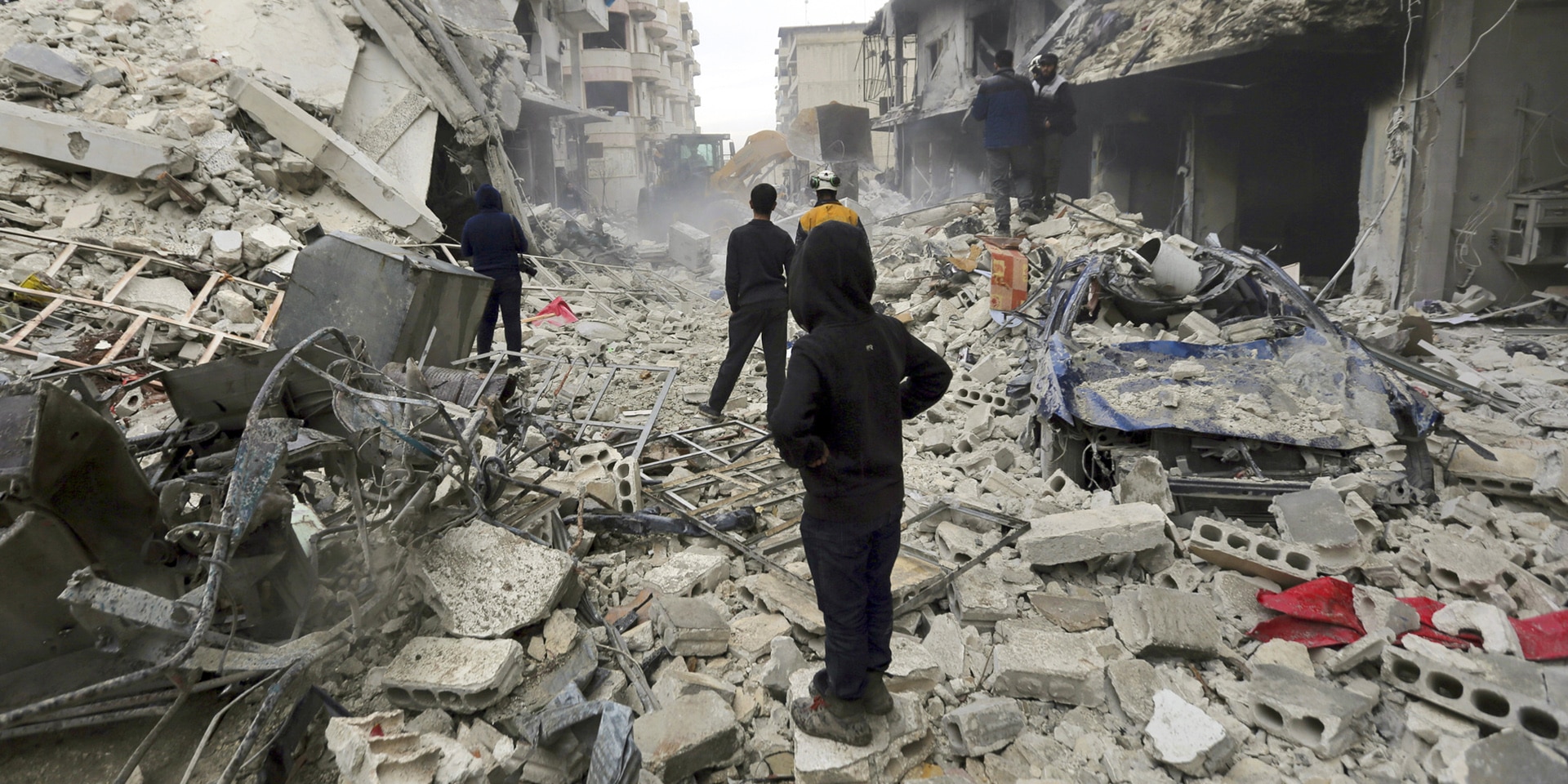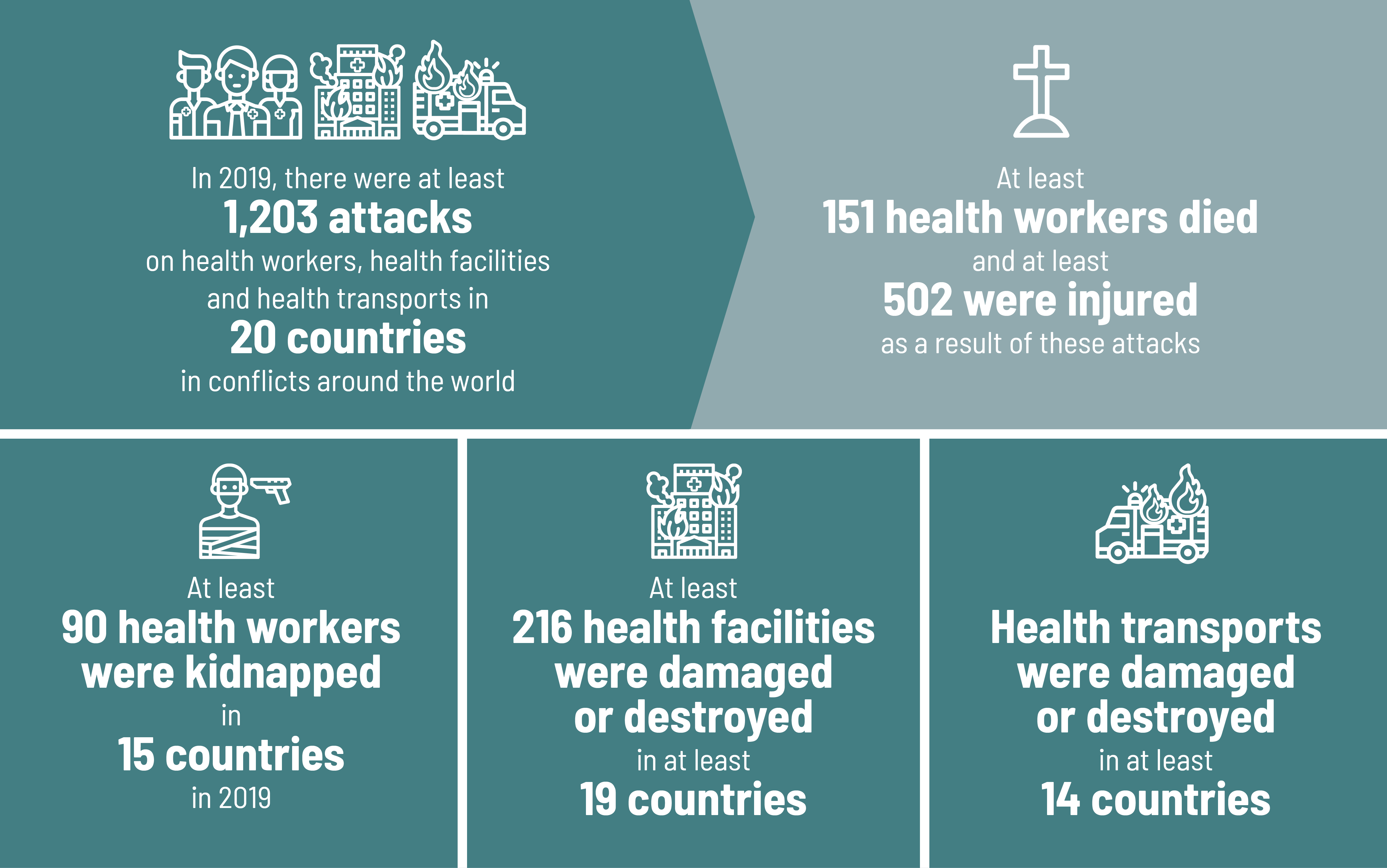Switzerland is committed to strengthening international humanitarian law
'International Humanitarian Law: What does Switzerland do?' On 18 November 2020, the FDFA, the DDPS, the Red Cross and the Swiss parliament will debate this question at a virtual round table discussion open to the public. It will offer an opportunity to recall Switzerland's long humanitarian tradition, to present good practices developed by the country, and to identify the many challenges left to tackle.

A field of ruins in Idlib, Syria, where several hospitals and health services were attacked by the warring parties in January 2020. © Keystone
October 2016: Aleppo, Syria's second-largest city, has lost one of its main hospitals in an unremitting series of military raids. The attacks have left the region's entire healthcare system paralysed, killed a large number of civilians, and prevented those injured in the war from receiving vital care. To this day, medical facilities in the province of Idlib are still being destroyed by such assaults. All too many people are mourning family members who died as patients in hospitals decimated by air raids. Women, children and the elderly: thousands of civilian victims have lost their lives although they did not participate in hostilities.
The respect and protection of wounded and sick people, as well as medical personnel is a fundamental principle of international humanitarian law (IHL). Switzerland condemns all attacks against healthcare infrastructure. More broadly, the FDFA encourages increased respect for and reinforcement of IHL in line with the Foreign Policy Strategy 2020–23. "International humanitarian law saves lives every day. It prevents and reduces suffering in war, which in turn contributes to peace and security. And this is why respecting and ensuring respect for IHL is fundamentally important," Federal Councillor Ignazio Cassis emphasises in the voluntary report on the implementation of international humanitarian law by Switzerland, which was adopted by the Federal Council in August 2020.
Switzerland’s humanitarian tradition, a historical heritage
The need to protect the wounded and sick lies at the origins of IHL more than 150 years ago. In response to this, Henry Dunant established the first Committee of the Red Cross, and the first Geneva Convention was drafted in 1864. In the aftermath of the Second World War, the four Geneva Conventions of 1949 were adopted on Switzerland's initiative and have since been ratified by all States. The Geneva Conventions of 1949 are at the core of IHL. The latter prohibits torture, the destruction of civilian property, the use of chemical or anti-personnel weapons, as well as the depredation of cultural heritage. It also protects those involved in humanitarian work.
As the birthplace of IHL, Switzerland's activity in the field is part of a humanitarian tradition recognised around the world. This tradition, as well as the country's neutrality and status as the depositary State for the Geneva Conventions, mean that Switzerland enjoys strong legitimacy with regard to IHL.

Switzerland acts both internationally and domestically
Serious violations of IHL are war crimes, and these crimes must be prosecuted. Switzerland is therefore committed to the fight against impunity. The International Criminal Court (ICC) has competence for prosecuting war crimes when national authorities are not able or not willing do so. It acts as a deterrent and contributes to the application of IHL. This is why Switzerland works to support a strong ICC.
Since some IHL provisions are applicable during peace time, Switzerland is also active within its own territory. It has, for example, created nearly 320 'safe havens' throughout the country. These storage areas protect items of movable cultural property which is threatened by armeds conflicts or natural disasters in their countries of origin.
Three key moments in 2020
In 2020, Switzerland strived to promote IHL through three initiatives with Swiss citizens and the international community. As Federal Councillor Ignazio Cassis put it: "Foreign policy and domestic policy are inextricably linked. That's democracy at work, where the populace, acting through legitimate government institutions, strives to develop policy that is consistent at national and international level.
One of the key moments of the year was the adoption by the Federal Council on 12 August of the voluntary report on the implementation of international humanitarian law by Switzerland, which offers a general overview of how IHL is applied by our country. Switzerland is one of the first States to have issued such a report. Voluntary reports encourage dialogue between States on challenges and best practices. Such dialogues are necessary to improve respect for IHL.
From 2 to 5 November 2020, Switzerland also organised a virtual meeting of State experts on the protection of medical activities in armed conflicts. The meeting allowed more than 280 representatives from 100 states to identify and share good practices. The States can now use this to improve the implementation of IHL at the national level.
Finally, on 18 November 2020 the Directorate of International Law of the FDFA and the Swiss Red Cross jointly organise a round table entitled 'International Humanitarian Law: What does Switzerland do?' It will provide the opportunity to create a dialogue with NGOs, academia, and the citizens in particular. It also seeks to allow to share ideas about established good practices and the issues to be tackled.
Intensifying efforts to meet the challenges of digitalisation
Among these issues is the relationship between new technologies and humanitarian work. Faced with a growing need for action, and thanks to the unique position enjoyed by International Geneva, the FDFA is pursuing its commitment to meeting the new challenges of digitalisation. The topic is also discussed in the voluntary report and its associated action plan, due to be implemented by 2023. As a whole, the measures aim to improve the implementation of IHL and, ultimately, to alleviate the suffering of the victims of armed conflicts.
